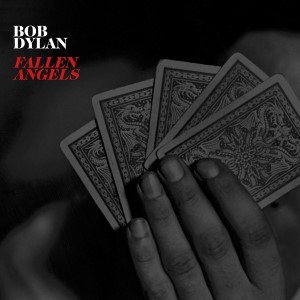
..:: audio-music dot info ::.. |
| A l b u m D e t a i l s |
 |
Label: | Columbia Records |
| Released: | 2016.05.20 | |
| Time: |
37:50 |
|
| Category: | Traditional Pop | |
| Producer(s): | Jack Frost | |
| Rating: | ||
| Media type: | CD |
|
| Web address: | www.bobdylan.com | |
| Appears with: | ||
| Purchase date: | 2016 | |
| Price in €: | 1,00 | |
| S o n g s , T r a c k s |
| A r t i s t s , P e r s o n n e l |
| C o m m e n t s , N o t e s |
What Dylan gives us in these recordings is something of a sentimental memoir...aged four at a family party he brought the house down with his renditions of Ac-Cent-Tchu-Ate the Positive and Some Sunday Morning...with seemingly nothing in common with his thrillingly modern yet deep-rooted songs two decades later...Yet he has form as a writer in this idiom in such songs as 2001’s Moonlight, arguably even 1969’s Tonight I'll Be Staying Here with You.Also praising the concept behind Fallen Angels and its predecessor, Shadows in the Night, Stephen Thomas Erlewine of AllMusic stated:
These wise, wily interpretations underscore Dylan's ultimate aim with these Sinatra records, which is to slyly tie together various strands of American music, bringing Tin Pan Alley to the barrooms and taking the backwoods uptown. The results are understated yet extraordinary, an idiosyncratic, romantic vision of 20th century America.Jon M. Gilbertson, in a review from Milwaukee Journal Sentinel, opines, "Fallen Angels, like last year's Shadows in the Night, teases out threads of Sinatra sentimentality — Frank recorded nearly all the songs on both discs — and winds them around a voice that is desiccated in tone and tune but, in phrasing and emotion, can still find romantic blossoms among the painful thorns." Likewise, Andy Gill of Uncut Magazine, in a positive review of 8 stars out of 10, also related the album to Shadows in the Night, feeling that "Dylan has continued to restrict his choice to those songs which conform loosely to a mood of weary resignation, extending the engaging crepuscular mood of Shadows in the Night."
| L y r i c s |
| M P 3 S a m p l e s |